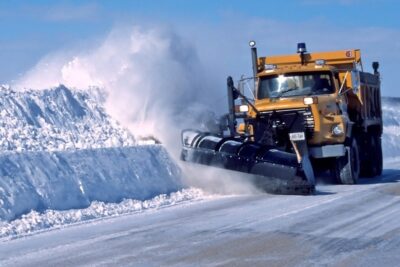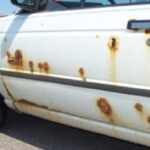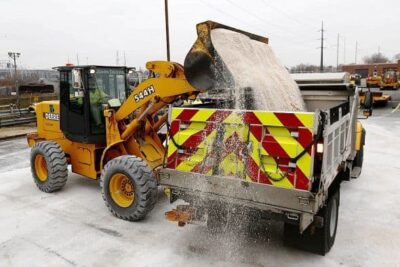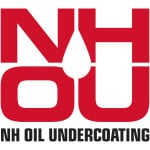Road Salt Brine & Auto Corrosion
Auto Corrosion from Road Salt/Brine
Like termites boring through wood, rust eats through the critical components of your car. (Auto Corrosion) Its favorite meal is steel, wiring, and aluminum. You won’t see it until it’s too late. A silent enemy, (Salt Brine), its destruction is aided by the
salt-covered highways
meant to keep you safe. But what is it doing to cause auto corrosion?

Highway crews hard at work plowing and salting the roads. What is it doing to cause auto corrosion?
CC BY-SA 2.5,
source
The Cost of Salt Brine Is Auto Corrosion
Protecting our highways since the early 1940s, salt has been a cost-effective solution. Over the years, as the highway infrastructure grew and commuters needed to travel in all conditions, salt became a standard in keeping roads passable. While this solution saved lives, its effects on the environment, budgets, and vehicles are staggering.
Salt corrodes not only cars and trucks but also bridges, reinforcing rods in concrete, and even the vehicles used to spread it. According to Brad Plumer’s
research for Vox.com, the U.S. spends just under $3 billion annually to make roads safe during winter and another $5 billion on damage caused by salt. But what is the cost to consumers for auto corrosion?
The Effects of Salt Brine on Your Car
Did you know that:
- Americans use more than 48 billion pounds of salt annually to clear roads.
- Rock salt lowers the risk of collisions by nearly 85%.
Rust forms when moisture and oxygen combine on metal, and salt accelerates this process. Taking your car out of the cold and letting the ice melt in a warm environment increases the chance of rust. Road salt spins under your tires into all components, causing unseen damage over time. Try our
NHOU Salt Brine Eliminator before undercoating your vehicle.

Rust damage repair to automobiles from road salt and brine costs consumers millions annually.
How Does Salt Brine Accelerate the Auto Corrosion Process?
Imagine a small rip in fabric. As it stretches, it weakens and tears. This is oxidation (corrosion) at work, flaking metal and creating pits that weaken your car. Salt increases the conductivity of moisture, accelerating rust formation. Concentrated salt deposits on icy roads only worsen the issue.
Vehicle Undercoating Services
Vehicle undercoating is more important than ever with the introduction of salt brine. Brines work immediately and are effective at lower temperatures but contribute heavily to auto corrosion.

Road crew in Pennsylvania prepares for a winter storm by loading salt into a truck. (AP Photo/Matt Rourke)
Why You Should Consider a Vehicle Undercoating Service
Toyota may soon agree to a
settlement of up to $3.4 billion in a class-action lawsuit over rust protection. Proactive oil-based rustproofing maintenance can help avoid such issues and extend your vehicle’s life.
Consider NH Oil Undercoating®
NH Oil Undercoating® provides a barrier that heals itself after abrasions, offering lasting protection in extreme conditions. For those unable to attend an NH Oil Undercoating® workshop, video tutorials are available covering DIY kits, preparation, application, and maintenance.

Stop Road Salt Rust & Auto Corrosion with NHOU.

 Buy US Direct
Buy US Direct Buy CA Direct
Buy CA Direct Buy EU Direct
Buy EU Direct Buy DE Direct
Buy DE Direct